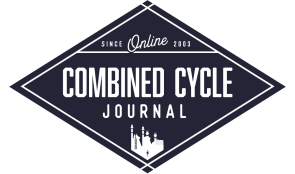Shines spotlight on tube failures, cycle chemistry, materials issues
Co-Chairs Barry Dooley of Structural Integrity (bdooley@structint.com) and Bob Anderson of Competitive Power Resources (anderson@competitivepower.us) hosted 90 participants from 17 countries at EHF2021, a virtual event conducted May 18 and 20. More than 60% of the attendees were from 15 generating companies.
The 18 presentations made during the meeting covered new information and technology related to HRSGs, plus case studies of plant experiences and solutions. Topical open-discussion sessions among users, equipment suppliers, and industry consultants were integrated into the program.
The mix of different topics (including materials chemistry, operation, valves, tube failures and assessment techniques, inspection, and cleaning) proved of great interest to attendees judging by the robust Q&A and discussion—thereby confirming the value of forums promoting the global exchange of technical information.
The European HRSG Forum is supported by the International Association for the Properties of Water and Steam (IAPWS) and is conducted in association with the Australasian Boiler and HRSG Users Group (ABHUG) and the US-based HRSG Forum with Bob Anderson. EHF2021 was sponsored by Trace Analysis and Swan Analytical Instruments and organized by PPChem AG.
Conference highlights
HRSG tube failures (HTF) remain a major concern, with these aspects among those discussed:
- Flow-accelerated corrosion (FAC), with clarification of the effect of oxygen levels and the use of oxidizing treatments (no reducing agents) in addressing single-phase FAC.
- The major features associated with creep and creep-fatigue. Note that, while HRSGs typically operate in the cyclic mode and for periods at relatively constant output, that does not mean failures can be attributed to creep-fatigue.
- The importance of metallurgical analysis to identify/confirm the mechanism of failure was emphasized as the first important step in addressing HTF.
- Several of the attendees attributed pressure-part failures in superheaters and reheaters to condensate, drains, and attemperators.
Updates on HRSG cycle chemistry from around the world included the following:
- The latest chemistry-influenced reliability statistics, referred to as Repeat Cycle Chemistry Situations (RCCS), showed overall improvement for the first time in 10 years. For background, retrieve the special report, “Trends in HRSG reliability, a 10-year review,” published in CCJ No. 61 (2019), p 44.
- An update on the application of film-forming substances (FFS)—both amine- (FFA) and non-amine- (FFP) based—reminded users that a significant reduction in the quantity of corrosion products can be achieved, but that tube failure problems and deposits (a/k/a “gunk”) can occur if the FFS is not applied with expert guidance.
- Assessment tools and instruments for monitoring film-forming amines (FFA) using OLDA (oleyl propylenediamine) were introduced.
- The latest IAPWS Technical Guidance Documents for combined-cycle/HRSG plants were reviewed.
- A good example of optimal cycle chemistry for a dual-pressure HRSG was presented.
An overview of the problems associated with HP bypass-valve erosion by wet steam were highlighted based on a successful recent workshop held on the topic at the HRSG Forum. (You can listen to a recording of the panel discussion at www.hrsgforum.com.) Information shared confirmed the need for plant designers to focus greater attention on providing for sufficient warming steam flow in the HP piping between the HPSG outlet and the isolation valve at the HP common manifold.
EHF2021 featured several presentations related to materials of construction and analysis. Points made included these:
- There can be challenges associated with introducing creep-strength-enhanced ferritic (CSEF) steels in HRSGs, including T/P 91 and 92. Discussion included the relatively new “zinc effect,” which has caused cracking in welds where zinc-based paint was used to protect material prior to fabrication. A poll of EHF2021 users indicated only a small percentage of the attendees had knowledge of this application and failure/damage mechanism.
- A compilation of different failure modes associated with welds, and the good (and bad) welding and repair practices used.
- Advanced approaches to component fatigue evaluation.
The latest research and case studies on pressure-wave technology for fireside cleaning of HRSGs. Some discussion also focused on the possibility of internal oxide/deposit dislodgement.
Large sidewall casing penetration seals: The latest approaches applied to design and fabrication.
An update on drum-level instrumentation and regulatory requirements.
Introduction of new, retrofittable steam-cycle technologies—including modular once-through boilers rated less than 100 MW to accommodate flexible operation. CCJ



